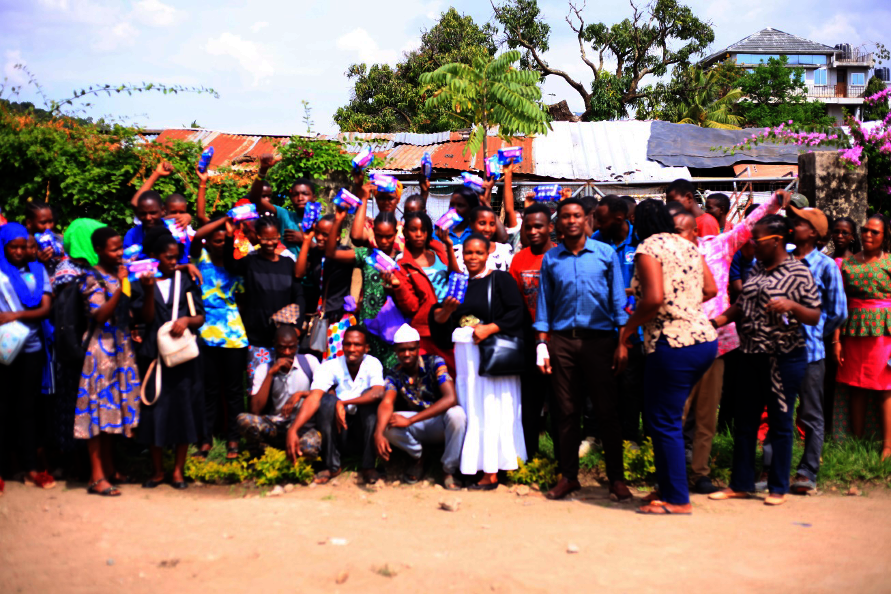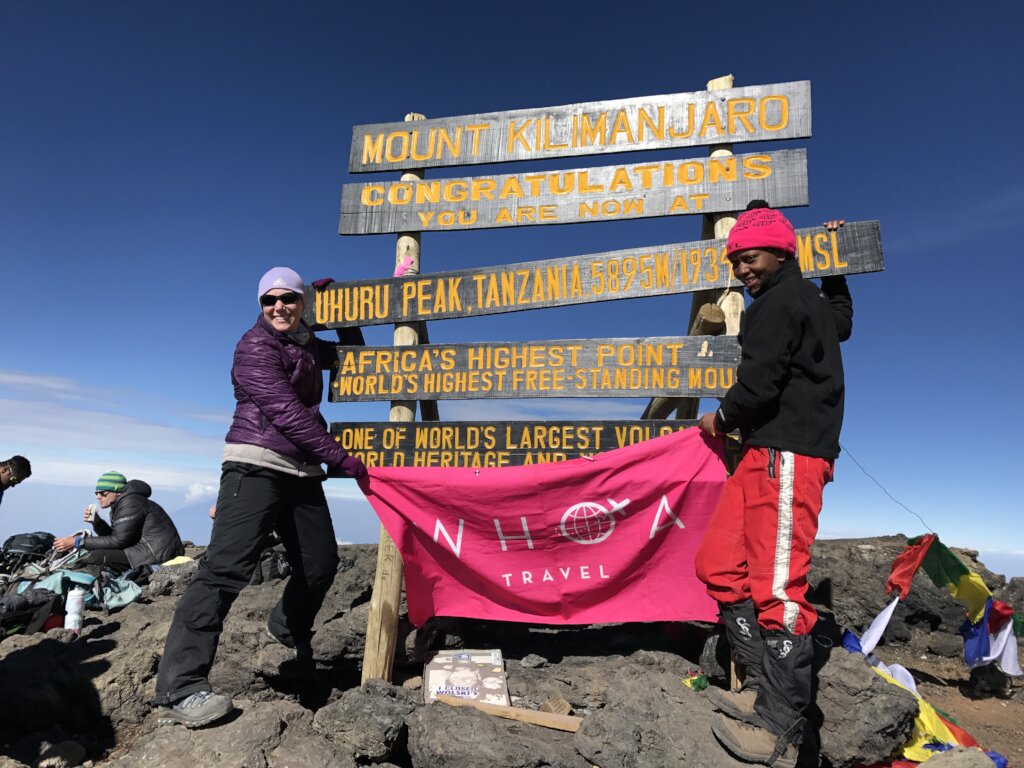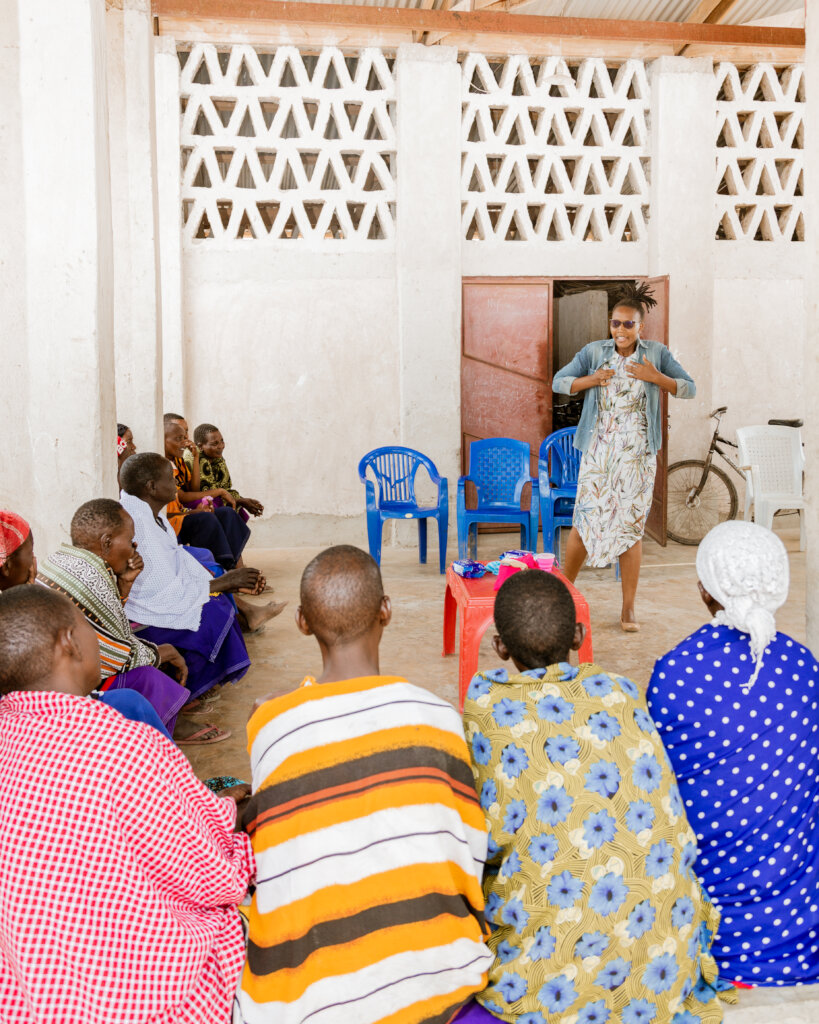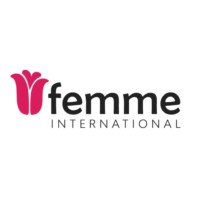




Femme International is committed to using education, conversation & distribution to break down the global menstrual taboo. Menstruation affects 51% of the world's population, with every woman experiencing menses during her lifetime. For menstruators in low-income communities, getting your period presents a set of specific challenges - poor access to menstrual products, oppressive taboos, lack of adequate hygiene facilities, and lack of reproductive health education. 83% of girls in Burkina Faso, and 77% in Nigeria (UNICEF) have no place to clean themselves at school, and will therefore leave early. The World Bank has estimated that girls will miss 10-20% of her education because ... read more Femme International is committed to using education, conversation & distribution to break down the global menstrual taboo. Menstruation affects 51% of the world's population, with every woman experiencing menses during her lifetime. For menstruators in low-income communities, getting your period presents a set of specific challenges - poor access to menstrual products, oppressive taboos, lack of adequate hygiene facilities, and lack of reproductive health education. 83% of girls in Burkina Faso, and 77% in Nigeria (UNICEF) have no place to clean themselves at school, and will therefore leave early. The World Bank has estimated that girls will miss 10-20% of her education because of her body's natural cycle. Femme believes that providing adolescent girls not only with reusable menstrual products, but also comprehensive education, empowers them to feel in control of their bodies, and breaks down the menstrual taboo. When women lack access to sanitary pads, either by financial constraints or lack of availability, they will use alternative methods. In India, 88% of menstruating women use homemade methods. In Tanzania, the most common method is to use rags, or cloth, folded into the underwear - something women have been doing for centuries. However, when the cloth is not washed properly, used when damp, or shared among sisters, it becomes unsafe. Other homemade methods common in Tanzania include foam mattress stuffing, newspaper, leaves, even mud. These methods are not safe or hygienic, and they are uncomfortable, preventing girls from being able to concentrate or participate in school. They also don't help girls feel comfortable during a week when they are already feeling ashamed of their bodies. Unsafe menstrual management is a leading cause of reproductive tract infections (UTIs, yeast infections, bacterial vaginosis), which when untreated can cause more serious health concerns. The decision to use and promote reusable products is because sanitary pads are unaffordable for many women. The average cost of a package of 8 pads in Tanzania is approximately $1/day, which is often the same as the daily wage for an unskilled labourer. For a 14-year old girl, she will rarely feel comfortable asking the male breadwinner for this money, and they will rarely be able to provide her with it. A study in Kenya indicated that one in ten girls aged 15 had engaged in transactional sex to purchase pads. In rural Tanzania, or even urban centers, there is no method of garbage disposal beyond burning. Many women report burying their products, but must do so far away from their homes because of the perceived destructive powers of menstrual blood. The environmental impact of disposable menstrual products is staggering, and unsustainable, both financially and environmentally. The Twaweza Project is simple - and it works. Preliminary M&E reports demonstrate significant impact, including improved academic results and attendance, improved self-confidence, reduction of financial stress, and improved health. Adolescent beneficiaries are two times less likely to report symptoms of bacterial vaginosis.

Each of GlobalGiving’s nonprofit partners is required to send quarterly donor reports detailing the impact of their work. Here are some of their recent updates:
By Sia Towo | Managing Director
Kariobangi Social Justice, in collaboration with Femme International and Vision Changers, successfully came together to celebrate International Women's Day at Kariobangi North Primary School in... Read the full report ›By Sia Towo | Country Manager
Let us keep breaking the barriers! The more we talk about menstruation in the news and media, the more it is normalized and the less power the stigma will hold. For women in Tanzania and Kenya, it... Read the full report ›By Sia Towo | Managing Director
I did my first Mt. Kilimanjaro trek on the 2018 New Year's Eve. When I mentioned to my family and friends that I was planning to climb Mt. Kilimanjaro again the overwhelming majority... Read the full report ›